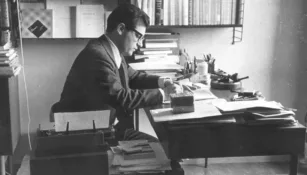CONTRIBUTI / 3 / Massimo Villani
The Chain of the Present. Populism and the Challenge of History
Ernesto Laclau and Hannah Arendt agree on some important concepts, such as those of contingency, spatiality of politics, and the feeble, evenemential nature of the latter. This very contiguity of lexicon and concepts highlights by contrast the irreducible difference between two models of historicity and, as we are about to argue, an important limit in the theory and praxis of populism. In Laclau’s theory, in fact, the political event qualifies as an absolute beginning that, although finding the conditions of its possibility in the facticity by which it’s surrounded, it drastically detaches itself from the context: this creates a punctiform temporality that, on one hand, leaves behind an unrestrained space for the emergence of the memory intended in an almost mythical dimension, in excess compared to the historiographical discussion; on the other hand, devoid of roots, moving out of the void, this temporality has no outlets on the future, locked inside of the reiteration of the breaking point. In Arendt’s theory it is instead possible – by virtue of a deep ambivalence towards the political productivity of history – to find important resources that, while holding the idea of a non-determined action, that is contingent and historically limited, establish the political act in the past – both individual and collective – and at the same time they break the circularity of the present, seeking out stability and durability.

